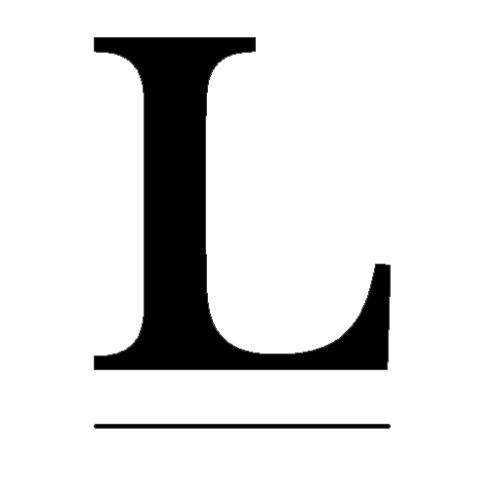Best Defamation Lawyers in Iskandar Puteri
Share your needs with us, get contacted by law firms.
Free. Takes 2 min.
List of the best lawyers in Iskandar Puteri, Malaysia

About Defamation Law in Iskandar Puteri, Malaysia
Defamation in Iskandar Puteri, Malaysia, like the rest of Malaysia, is governed by both statutory and common law principles. Defamation occurs when someone makes a statement, either spoken (slander) or written (libel), that damages another person's reputation without a valid defense. In Malaysia, the Defamation Act 1957 and relevant case law form the foundation for understanding and adjudicating defamation cases. The key emphasis is on balancing the freedom of speech and the protection of personal reputation.
Why You May Need a Lawyer
There are numerous scenarios where legal assistance for defamation may be necessary:
- If you believe you have been defamed and suffered harm to your personal or professional reputation.
- If you are accused of making defamatory statements and need to defend yourself.
- To navigate the complexities of how truth, opinion, and privilege operate as defenses in defamation cases.
- If you require assistance with drafting a letter of demand or understanding the potential remedies.
- To seek advice on public vs private figure defamation contexts, which can significantly impact the case.
Local Laws Overview
Defamation law in Iskandar Puteri is primarily informed by Malaysian federal laws, with the Defamation Act 1957 being central. Key aspects include:
- The distinction between libel and slander: Libel refers to written defamation, while slander refers to spoken words.
- The necessity of the claimant to prove that the statement was defamatory, identifying them specifically, and published to a third party.
- Defenses available in defamation law, including justification (truth), fair comment, and qualified privilege.
- The burden of proof often rests upon the defendant to justify their statements if challenged.
- Remedies generally involve monetary damages, retractions, or apologies.
Frequently Asked Questions
What constitutes a defamatory statement?
A statement is considered defamatory if it lowers someone’s reputation in the eyes of a reasonable person, exposes them to hatred, contempt, or ridicule, or harms their business or profession.
Is truth a defense to defamation?
Yes, the defense of justification is available in defamation cases, where the defendant can argue that the statement is true.
Can opinions be defamatory?
Opinions are generally not considered defamatory if they are based on true facts and do not imply undisclosed, defamatory facts.
What is the difference between libel and slander?
Libel refers to written or published defamatory statements, while slander involves spoken or transient defamatory statements.
What are the potential remedies for defamation?
The usual remedies include monetary damages, court-ordered retractions, apologies, and, in some cases, injunctions against future publication.
How long do I have to file a defamation lawsuit?
In Malaysia, the time limit to file a defamation lawsuit is typically six years from the date of the defamatory statement's publication.
Are there any defenses against defamation claims?
Defenses include justification (truth), fair comment (opinion), absolute privilege (e.g., in parliamentary proceedings), and qualified privilege.
What constitutes a public vs. private figure in defamation cases?
A public figure is someone in the public eye or involved in public affairs, requiring a higher threshold of proof for defamation. Private figures have lower thresholds but must prove negligence in the publication of defamatory statements.
Can an employer be liable for an employee’s defamatory statement?
Employers can be liable if an employee makes a defamatory statement in the course of their employment and authority is implied or direct.
Is online defamation treated differently?
Online defamation is subject to the same laws as offline defamation, but the medium of publication can complicate jurisdiction and the identification of anonymous defendants.
Additional Resources
Individuals seeking legal advice on defamation can look into the following resources:
- Bar Council Malaysia
- Law Society of Malaysia
- Legal Aid Centre in Iskandar Puteri
- Judicial cases through the Malaysian judiciary’s official platform
- Community legal clinics in Iskandar Puteri for preliminary advice
Next Steps
If you need legal assistance with a defamation issue, consider the following steps:
- Gather all evidence related to the defamatory statement, including documents, recordings, and witness statements.
- Consult with a local attorney specializing in defamation law to evaluate your case's merits.
- Consider sending a cease-and-desist letter if appropriate.
- Proceed with legal action if advised by your lawyer, keeping in mind the potential costs and implications.
- Stay informed about your case and maintain regular communication with your legal representative.
Lawzana helps you find the best lawyers and law firms in Iskandar Puteri through a curated and pre-screened list of qualified legal professionals. Our platform offers rankings and detailed profiles of attorneys and law firms, allowing you to compare based on practice areas, including Defamation, experience, and client feedback.
Each profile includes a description of the firm's areas of practice, client reviews, team members and partners, year of establishment, spoken languages, office locations, contact information, social media presence, and any published articles or resources. Most firms on our platform speak English and are experienced in both local and international legal matters.
Get a quote from top-rated law firms in Iskandar Puteri, Malaysia — quickly, securely, and without unnecessary hassle.
Disclaimer:
The information provided on this page is for general informational purposes only and does not constitute legal advice. While we strive to ensure the accuracy and relevance of the content, legal information may change over time, and interpretations of the law can vary. You should always consult with a qualified legal professional for advice specific to your situation.
We disclaim all liability for actions taken or not taken based on the content of this page. If you believe any information is incorrect or outdated, please contact us, and we will review and update it where appropriate.









